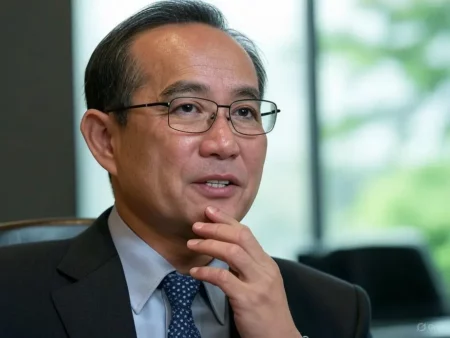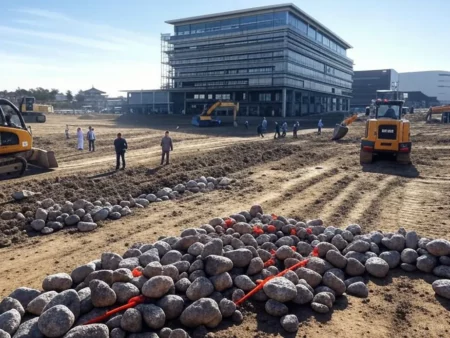The Philippine Supreme Court’s ruling affirms barangay autonomy in regulating bingo, enhancing local governance and community empowerment while fostering responsible gambling practices tailored to cultural and social needs.
Barangay Autonomy in Philippine Bingo Games
The recent decision by the Philippine Supreme Court to affirm the autonomy of barangays regarding bingo games is like giving a farmer the reins to manage his own field. It signifies a big step forward for local governance, showing that communities should have control over their own recreational activities. This ruling emphasizes the importance of self-determination and local regulation, and it plays a vital role in the ongoing conversation about gambling, local governance, and the empowerment of communities. By recognizing barangays’ authority to regulate bingo, the Supreme Court highlights the idea that local leaders know their communities best and can make the right choices when it comes to entertainment.
In this blog post, we will dive into the details of this ruling, its effects on barangays, and how it fits into the larger picture of gambling regulations in the Philippines. We will look into the legal framework, hear from barangay officials, and see how this decision aligns with the principles of local autonomy.
We will cover the following key points:
- The legal background of barangay autonomy
- The significance of bingo games in Filipino culture
- The implications of the Supreme Court’s ruling
- Responses from local government units
- Community reactions and support
- Future considerations for gambling regulations
The Legal Background of Barangay Autonomy
The ruling from the Supreme Court resonates like a powerful bell, echoing the provisions in the Local Government Code of 1991. This code hands barangays significant powers over local governance, allowing them to create policies that suit their unique social and economic contexts. Article 2, Section 2 of the Local Government Code clearly states that local government units (LGUs), including barangays, “shall have the right to create and implement their own ordinances that are beneficial to their constituents.” This legal framework acts as the backbone for the Supreme Court’s affirmation of local control over bingo games.
Additionally, this ruling ties into the Constitutional mandate of decentralization and local autonomy, which has been a guiding light since the 1986 People Power Revolution. It demonstrates a commitment to empowering local governments so that they can better serve their communities, especially in areas that affect public interests like gambling and entertainment.
The Significance of Bingo Games in Filipino Culture
Bingo games have become a thread woven into the fabric of Filipino culture, often used as a source of fundraising in communities. They not only provide enjoyment but also strengthen bonds among neighbors. Moreover, bingo events frequently support local causes, such as funding barangay projects, aiding schools, or helping families in need.
Therefore, the Supreme Court’s recognition of barangay autonomy over bingo games showcases a deeper understanding of the cultural and social value of these activities. Local officials believe that empowering them to regulate games will enhance their ability to harness the positive aspects of bingo while ensuring the welfare of the community. It’s important to acknowledge that barangays regulating these games can lead to responsible gambling practices and the prevention of illegal gaming operations.
The Implications of the Supreme Court’s Ruling
This Supreme Court decision is like a seed planted in local governance, empowering barangays to oversee bingo operations without interference from higher authorities. This freedom allows for more tailored regulations that respond to the unique needs of the community. Local governance is strengthened as barangays can enact and uphold ordinances that reflect the collective wants of their constituents.
“Local governance must reflect the unique nature of each community. This ruling allows barangays to manage bingo in a way that best serves their residents.” – Local Government Official
This ruling might also be a stepping stone for expanding local autonomy in regulating other recreational activities, possibly setting a precedent for further empowerment in different forms of entertainment within their areas.
Responses from Local Government Units
The feedback from various local government units (LGUs) regarding the Supreme Court ruling has been overwhelmingly positive, like cheers from a crowd. Many barangay officials are excited about their new ability to regulate bingo games. This decision enables them to establish standards for operational procedures, licensing, and adherence to local welfare policies.
Furthermore, barangays are now encouraged to include bingo games as part of their local economic strategies, potentially boosting community engagement and revenue. With proper oversight, barangays can ensure that proceeds from these games support social projects, fostering community development.
Community Reactions and Support
Local communities have largely embraced the ruling as a win for self-governance and self-determination. Many residents feel that barangays are best positioned to manage these activities because they have a vested interest in the welfare of their community.
Feedback from community members suggests they are eager to participate in organized bingo events if they are conducted responsibly and serve a greater good. Bingo events tailored to the community can also help address typical issues associated with gambling, like addiction, through proactive dialogues and support systems.
Future Considerations for Gambling Regulations
While the Supreme Court ruling is seen as progress, it brings several future considerations regarding gambling regulations to the forefront. Most importantly, it raises the need for comprehensive frameworks guiding how barangays should operate bingo games, including measures for responsible gambling.
This development might also spark national conversations about broader gambling policies, including the role of poker and online gambling. Striking a balance between local autonomy and national oversight is crucial, requiring cooperation between various levels of government and community stakeholders.
Conclusion
The Philippine Supreme Court’s affirmation of barangay autonomy in regulating bingo games is a significant milestone for local governance. This ruling strengthens the role of barangays in managing activities that hold social importance, enhances community participation, and encourages responsible governance.
Through this decision, local governments gain the tools to act in the best interests of their constituents, ensuring that activities like bingo provide entertainment while fostering community development. As barangays enjoy increased autonomy, they also carry the crucial responsibility of ensuring these games are run ethically, maximizing their benefits for the community.
Overall, this ruling sets a proactive tone for local governance in the Philippines, highlighting the importance of local leadership, community engagement, and tailored approaches to community needs. It remains to be seen how barangays will use this new authority, but the implications are set to positively impact local governance and empower communities throughout the Philippines for years to come.
Deposit from 300K, get 188K + Quick scan code, 1.5% cashback
All WW88 members who want to join the "Double Lucky Money Every Day" program just need to have a deposit of 100k or more on WW88 on that day, and the next day, members can receive lucky money up to 88,888K.
*Download WW88 App*
Exclusive Offer for Our Valued Customers: Earn up to 8,888 bonus points absolutely free!
Dear members, to celebrate the successful signing of the event featuring football star ÁNGEL DI MARÍA, during the event period, members who have accumulated a total deposit of 100 points and have valid bets that are three times the deposit amount or more can receive a maximum reward of up to 88,888 points the next day.
*Download Hi88 App*
Win and get an extra reward up to 888,888K!+Lose a bet and get up to 3,888K!
Sign up and make your first deposit of ≥50K, XIN88 rewards you with up to 8.888K. Bonus applies to Fishing - Jackpot - Card Games.
*Download Xin88 App*
Book now: Get 1.0% + Elite Member: Win 388,888K!
King33 welcomes you as a new member with the highest bonus of up to 8,888 points. Simply link your bank card, make your first deposit of 50 points or more, and start betting on Jackpot, Fishing games.
*Download King33 App*
New member: Get 8,888K initial top-up + Sports insurance: 100%
All new members of F8BET Entertainment can receive a 8,888,000 VND bonus upon successful registration, first-time deposit, and full submission of required information.
*Download F8BET App*
Top up 50K, get 1555K + Perfect Pair Baccarat 100% bonus
From now on, after signing up as a new member at Win55, linking your bank card, and making your first deposit of 50K, you can get 55K, with a maximum of 1.555K available at Game Nổ Hũ, Bắn Cá, and Game Bài 3D. Unlimited gifts are up for grabs, so what are you waiting for? Invite your friends and come claim your rewards with us. Join Win55 now, as many promotions are waiting for you.
*Download Win555 App*
Deposit 50K, get 9555K + 2nd day deposit bonus up to 10.555K
New members who deposit 100K or more and complete 3 valid betting rounds in games like 【Slot, Fishing, Card Games】 can receive a maximum bonus of 10555K the next day.
*Download 95VN App*
Weekly Bet Accumulation Bonus 38,888K + 100% Loss Rebate
All NEW88 members who participate in betting on the games [Jackpot, Fishing] and accumulate with valid betting amounts of 1,000 points or more, and accumulate deposits of 300 points or more, are eligible to receive weekly cumulative rewards of up to 30,888 points, credited every Monday.
*Download New88 App*

Asia’s most trusted platform for casino reviews, industry news, and exclusive bonuses.
Quick Links
Contact Information
Email: BetAsia.info@gmail.com
Customer Support: Support Available 24/7
Telegram:BetAsia8
Legal Information
Privacy Policy
Terms and Conditions
About Us
Contact Us
Help & FAQ
Follow Us
Facebook
Twitter
LinkedIn
YouTube
Disclaimer: TopGamb.com provides information and reviews on online gambling platforms for informational purposes only. We do not operate or provide any gambling services. Always check local laws and regulations before engaging in online gambling, as it may be illegal in some jurisdictions. Please gamble responsibly. Players must be 18 years or older to participate in online gambling. TopGamb.com is not responsible for any financial losses or damages incurred while using any gambling services featured on this site.





















